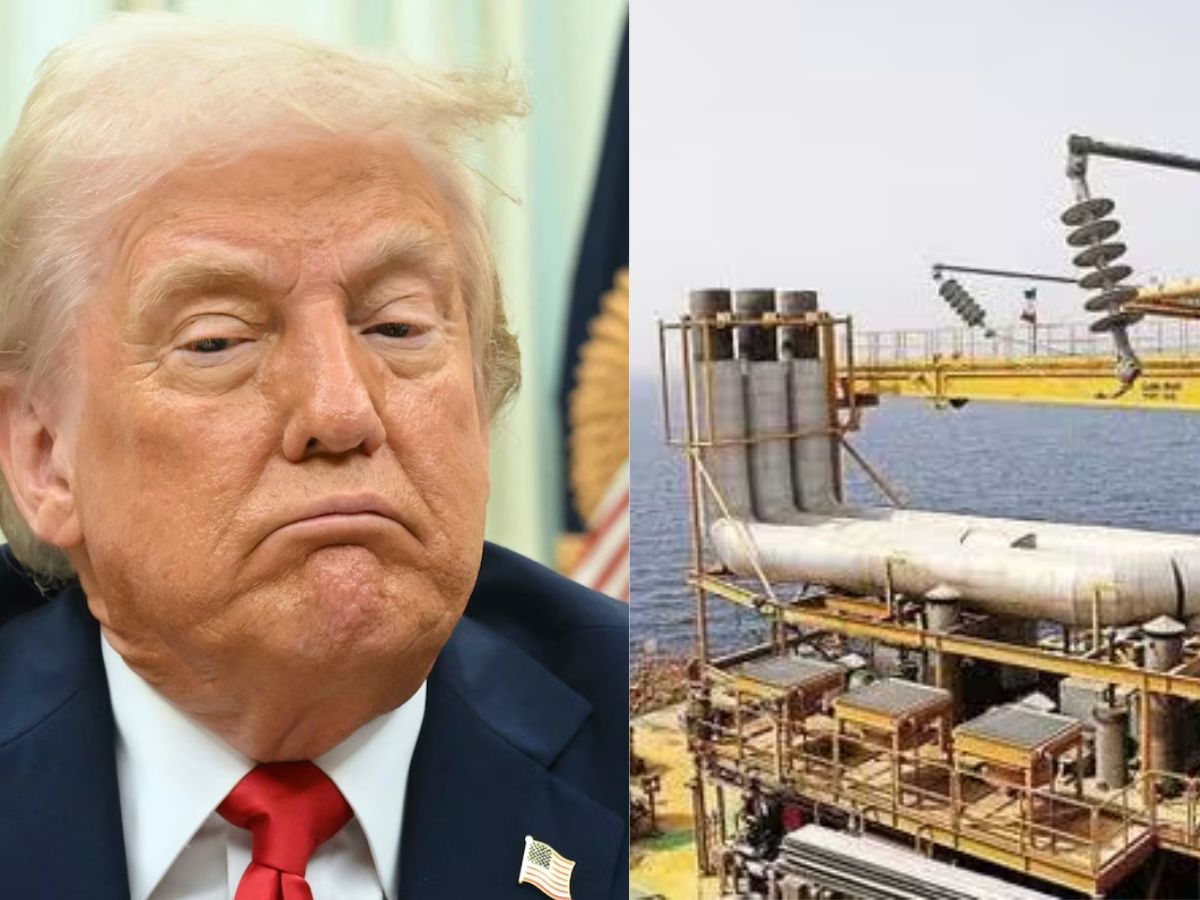Pakistan Oil Reserves: US President Donald Trump’s announcement of entering into oil exploration partnership with Pakistan raises one question that whether Islamabd has enough oil reserves that merits such a ‘massive’ trade deal.
The energy trade deal between US and Pakistan has raised eyebrows among energy analysts who say no such confirmed reserves currently exist in Pakistan.
“We have just concluded a deal with the country of Pakistan, whereby Pakistan and the United States will work together on developing their massive oil reserves,” Trump posted on his social media platform Truth Social on Wednesday.
“We are in the process of choosing the oil company that will lead this partnership. Who knows, maybe they’ll be selling oil to India some day!” Trump said.
US-Pakistan Energy Deal Announced Day After Donald Trump Imposes 25% Tariffs On India
US-Pakistan so called ‘massive’ energy deal came just a day after he imposed a 25% tariff on Indian imports, citing India’s close defense and energy ties with Russia. He also hinted at an “unspecified penalty” for India’s relationship with Moscow.
Also Read: ‘Dead Economies’: Trump Lashes Out At India, Russia After Slapping 25% Tariff, Says ‘I Don’t Care….’
“They have always bought a vast majority of their military equipment from Russia, and are Russia’s largest buyer of energy, along with China, at a time when everyone wants Russia to stop the killing in Ukraine , All things not Good!” Trump said while announcing the tariffs.
Despite the trade tensions, Trump indicated negotiations with India were still ongoing. “We’ll see what happens… You’ll know by the end of this week,” he told reporters on Tuesday.
Does Pakistan Have ‘Massive’ Oil Reserves?
While Trump touted Pakistan’s untapped oil potential, current data paints a more grim picture. The 2016 estimates of US Energy Information Administration (EIA) and Worldometer, Pakistan had 353.5 million barrels of proven oil reserves as of 2016. This is just 0.021% of thetotal global oil reserves and thereby places the Pkaistan on 52nd rank worldwide.
Pakistan consumes around 556,000 barrels of oil per day, meaning its existing reserves would last under two years without imports. The country produces only about 88,000 barrels daily, forcing it to import roughly 85% of its oil needs.
Pakistan Says It Has Offshore Oil Exploration Potential in the Indus Basin
Experts say Trump’s statement in which he announced energy deal with Pakistan may have been influenced by the recent geological surveys by Pakistan in the Offshore Indus Basin.
The country conducted a three-year seismic data f with assistance from a what it calls “friendly country”. The survey identified large underwater energy formations that are believed to contain hydrocarbons.
However, these projections remain unproven. No commercial drilling has confirmed the presence or viability of these oil resources. Energy experts caution that the term “reserves” is premature in this context, as it requires confirmed discovery, development plans, and commercial feasibility.
No Successfull Results With Pakistan’s Offshore Drilling Yet
The Offshore Indus Basin’s tectonic features and mudstone-rich formations do make it a geologically promising site. Seismic analysis suggests the presence of thick source rocks and possible structural traps.
Yet, offshore drilling in Pakistan has so far yielded no successful results. Previous efforts, such as the high-profile Kekra-1 well, failed to produce oil.
Still, Pakistan’s Ministry of Energy and state-run Oil and Gas Development Company Limited (OGDCL) remain optimistic. They believe that with sufficient foreign investment and advanced technology, the offshore potential could be unlocked.
Pakistan’s Ministry of Energy in 2024 claimed substantial hydrocarbon potential in the Offshore Indus Basin. The assessment was based on 2D and 3D seismic data and sparked excitement within the government and state energy agencies.
However, experts have expressed doubt about saying such formations cannot yet be classified as “reserves.”
Pakistan Needs Huge Investments Even If Reserves Exisit
Even if the hydrocarbon potential proves substantial, development would require massive investment. Industry experts estimate that exploration and early development could cost up to $5 billion and take four to five years.
Additional infrastructure that including pipelines, refineries, and ports, would need billions more. Pakistan’s fragile economic situation complicates the matter further. The country faces $126 billion in external debt and a 2023 energy import bill of $17.5 billion.
Domestic refining capacity is also limited in Pakistann and the refineries it has currently can process only about 450,000 barrels per day which is already strained by internal demand.






